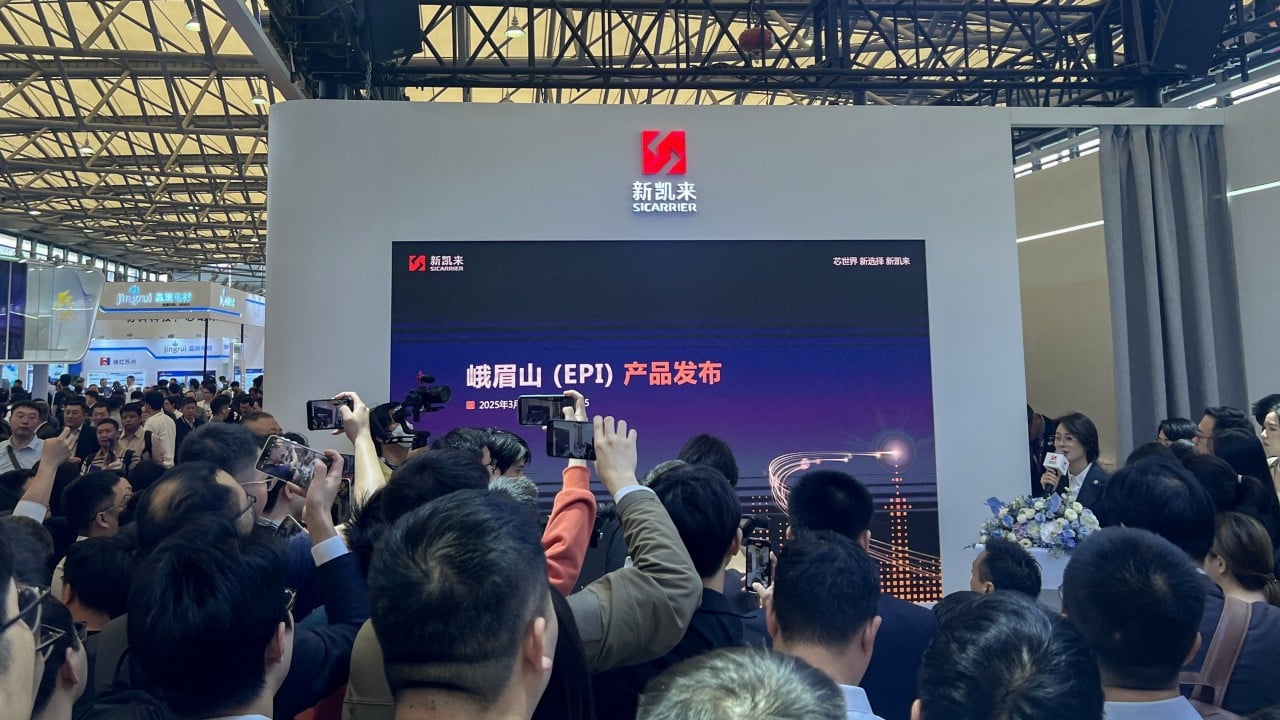SiCarrier, a Chinese semiconductor equipment maker with ties to Huawei Technologies, stole the show at a three-day industry event in Shanghai on Wednesday with the debut of new chipmaking tools that could bolster the country’s push for self-reliance in the face of US export controls.
Advertisement
Four years after its founding, with backing from the Shenzhen government, SiCarrier unveiled dozens of new chip manufacturing and testing machines at Semicon China, an annual gathering of industry players. It was the first public display of its equipment, which industry insiders speculate may have contributed to the production of Huawei’s home-grown 7-nanometre chips that debuted in the Mate 60 Pro smartphone in 2023. The company has not confirmed these claims.
While the company did not specify the process nodes that its machines can achieve, a staff member at the event said some of them, including an etching tool that is not on the product list, are capable of supporting 5-nm chip production. This aligns with a 2023 patent filing for a process enabling a 5-nm process using existing deep ultraviolet lithography (DUV) tools. Such advanced chips typically require extreme ultraviolet lithography, the technology for which is largely banned from export to China.
SiCarrier’s booth drew throngs of visitors, with reporters, industry peers and potential clients all eager to catch a glimpse of the company’s products that could reduce China’s reliance on foreign chipmaking equipment.

A promotional video emphasised its “100 per cent self-sufficient” machine control systems and operating software, and touted “self-controllable” key components developed in-house or through strategic partnerships.
Advertisement

